Do Essential Oils Cause Cancer
With the rise in popularity of essential oils, many people are turning to these natural remedies for various health benefits.
Some debate and concern have arisen about the potential risks of essential oils, particularly in relation to cancer.
In this article, we will explore the claims surrounding essential oils health problems, as well as what research has to say on the matter.
We will also provide tips on how to use essential oils safely to ensure your well-being.
Key Takeaways:
What Are Essential Oils?
Essential oils are highly concentrated compounds extracted from plants that capture the plant’s scent and flavor, also known for their potential health benefits. These oils are derived through processes like distillation or cold pressing, containing the essence of the plant and its aromatic compounds.
During the distillation process, steam is used to separate the essential oils from the plant material, resulting in a pure and potent product. On the other hand, cold pressing involves pressing the plant material to extract the oils without the use of heat, preserving their delicate properties.
These essential oils are composed of a complex mixture of chemical compounds such as alcohols, phenols, and terpenes. Alcohols provide uplifting and antiseptic qualities, phenols offer strong antibacterial properties, while terpenes contribute to the distinctive aroma of each oil.
How Are Essential Oils Used?
Essential oils can be used in various ways, with inhalation being a popular method to experience their benefits. Dilution of essential oils with carrier oils is recommended before applying them topically to the skin. Diffusers are commonly used to disperse essential oils into the air for aromatherapy purposes.
Regarding inhalation, one can simply inhale the aroma directly from the bottle, add a few drops to a tissue or cotton ball, or use an essential oil diffuser to spread the scent throughout a room. This method allows the molecules of the oils to reach the olfactory system, triggering various responses in the body.
For topical application, it is crucial to dilute essential oils properly to avoid skin irritation or sensitivities. This can be done by mixing a few drops of the essential oil with a carrier oil like coconut or jojoba oil. The diluted mixture can then be applied to the skin, allowing for absorption and localized benefits.
When using a diffuser, it’s essential to follow the manufacturer’s instructions to ensure safe and effective use. Diffusers come in various types, such as ultrasonic, nebulizing, or heat-based, each offering unique ways to disperse the essential oils into the air. This method not only adds fragrance to a space but also helps create a calming or invigorating atmosphere depending on the oils used.
Are Essential Oils Safe?
While essential oils offer potential health benefits, safety considerations are essential due to the risk of adverse reactions. Skin irritation, allergic reactions, and phototoxicity are possible adverse effects from improper use of essential oils.
To ensure safe usage, it’s crucial to dilute essential oils properly with carrier oils before applying them to the skin. Conduct a patch test before widespread use to check for any sensitivity. Always follow recommended guidelines for specific oils, as some are more potent and require extra caution. Proper storage in a cool, dark place and keeping them out of reach of children and pets is vital. Understanding the potential adverse effects and being vigilant about any signs of discomfort or reaction can help prevent any unwanted outcomes.
What Are The Potential Risks Of Essential Oils?
Understanding the potential risks associated with essential oils is crucial, especially for individuals with respiratory conditions like asthma or COPD.
Adverse reactions can occur due to improper inhalation or application methods, impacting the respiratory system. Inhalation of certain essential oils can trigger respiratory distress, exacerbate symptoms, and even lead to respiratory failure in severe cases. For individuals with asthma or COPD, the concentrated nature of essential oils can further irritate the airways and potentially cause inflammation, making it vital to follow proper dilution and inhalation techniques. It’s important to consult with a healthcare professional before using essential oils if you have preexisting respiratory issues to ensure safety and minimize any adverse effects.
What Are The Claims About Essential Oils And Cancer?
There are various claims surrounding essential oils and their impact on cancer, including assertions about curing, preventing, or causing cancer. Research involving Swiss albino mice and carcinogen-metabolizing enzymes has been conducted to explore the potential effects of essential oils on cancer development.
One study published in the Journal of Pharmacognosy and Phytochemistry investigated the impact of essential oils derived from ginger, peppermint, and cinnamon on carcinogen-metabolizing enzymes in liver tissues of Swiss albino mice. The results demonstrated that certain essential oils exhibited potential chemopreventive properties by enhancing the activity of these enzymes.
It is essential to note that while some people advocate for the use of essential oils as a complementary therapy in cancer treatment, there is ongoing debate within the scientific community regarding their efficacy. Essential oils should not be viewed as a standalone treatment for cancer but rather as part of a comprehensive approach to health and wellness.
Essential Oils Can Cure Cancer

It is crucial to note that the purported cancer-curing properties of essential oils lack substantial scientific backing, and the medical community generally cautions against relying solely on them for cancer treatment. While essential oils may offer certain therapeutic benefits and can complement conventional medical treatments, they are not considered a cure for cancer.
The efficacy of essential oils in cancer treatment largely depends on factors such as the quality of the oil, its purity, and the correct dosages used. The quality and purity of essential oils can vary significantly among different brands and sources, which can impact their effectiveness.
Essential Oils Can Prevent Cancer
Some sources suggest that essential oils may have cancer prevention properties, with compounds like d-limonene found in certain oils purported to have chemopreventive effects. Turpentine oil is among the substances studied for its potential role in cancer prevention.
Research has shown that d-limonene, commonly present in citrus essential oils, exhibits potential anticancer activity by inducing apoptosis and inhibiting tumor growth. Studies have indicated that turpentine oil contains alpha-pinene, a compound that has demonstrated antioxidant and anti-inflammatory properties, which could play a role in cancer prevention. These findings contribute to the ongoing exploration of essential oils as a natural alternative for supporting cancer prevention strategies.
Essential Oils Can Cause Cancer
Contrary claims suggest that essential oils might contribute to cancer development through mechanisms like affecting aryl hydrocarbon hydroxylase or glutathione S-transferase activity. Research has explored the potential carcinogenic effects of certain essential oil components.
Specific essential oil components like safrole, estragole, and methyleugenol have been associated with potential carcinogenic activity. For example, safrole, found in sassafras oil, has been linked to liver cancer in animal studies.
Some studies suggest that prolonged exposure to certain essential oils could disrupt normal cellular processes, potentially increasing the risk of cancer development. While more research is needed to fully understand the relationship between essential oils and cancer risks, caution is advised when using these products, especially in high concentrations.
What Does Research Say About Essential Oils And Cancer?
Research conducted by organizations such as the National Cancer Institute and the American Cancer Society has aimed to clarify the relationship between essential oils and cancer. Current findings suggest that essential oils do not directly cure, prevent, or cause cancer.
While essential oils have gained popularity for their aromatherapy and skincare benefits, studies have shown that their effects on cancer cells are limited. The American Cancer Society explains that while some essential oils may have anti-inflammatory properties and can help reduce stress and anxiety, there is no scientific evidence to support claims that they can treat cancer.
The National Cancer Institute emphasizes the importance of relying on proven medical treatments for cancer, highlighting that essential oils should not be used as a substitute for conventional therapies like chemotherapy and radiation.
Essential Oils Do Not Cure Cancer
Studies have shown that essential oils, when used appropriately, do not have the capacity to cure cancer. The importance of adhering to recommended dosages and safe application methods is crucial when considering essential oils as part of cancer therapy.
While essential oils are known for their aromatherapeutic benefits which can help alleviate stress and promote relaxation, it is essential to understand that these oils are not a replacement for conventional cancer treatments.
Scientific consensus emphasizes that essential oils should be viewed as complementary aids that can support overall well-being during cancer treatment, rather than as curative remedies.
Integrating essential oils into cancer therapy must be done under the guidance of healthcare professionals to ensure safety and efficacy. Remember, proper education and caution are key when utilizing essential oils in any medical context.
Essential Oils Do Not Prevent Cancer
Research findings have indicated that essential oils do not offer substantial preventive benefits against cancer. Individuals with conditions like G6PD deficiency may experience adverse effects when using certain essential oils.
While essential oils have gained popularity in alternative medicine for their aromatic and therapeutic properties, recent studies have shown limited efficacy in cancer prevention. In fact, some essential oils have been found to have adverse effects on certain individuals, particularly those with underlying health conditions like G6PD deficiency, leading to allergic reactions or skin irritation. It’s crucial for individuals to consult healthcare professionals before incorporating essential oils into their wellness routines, especially when dealing with pre-existing health concerns.
Essential Oils Do Not Cause Cancer
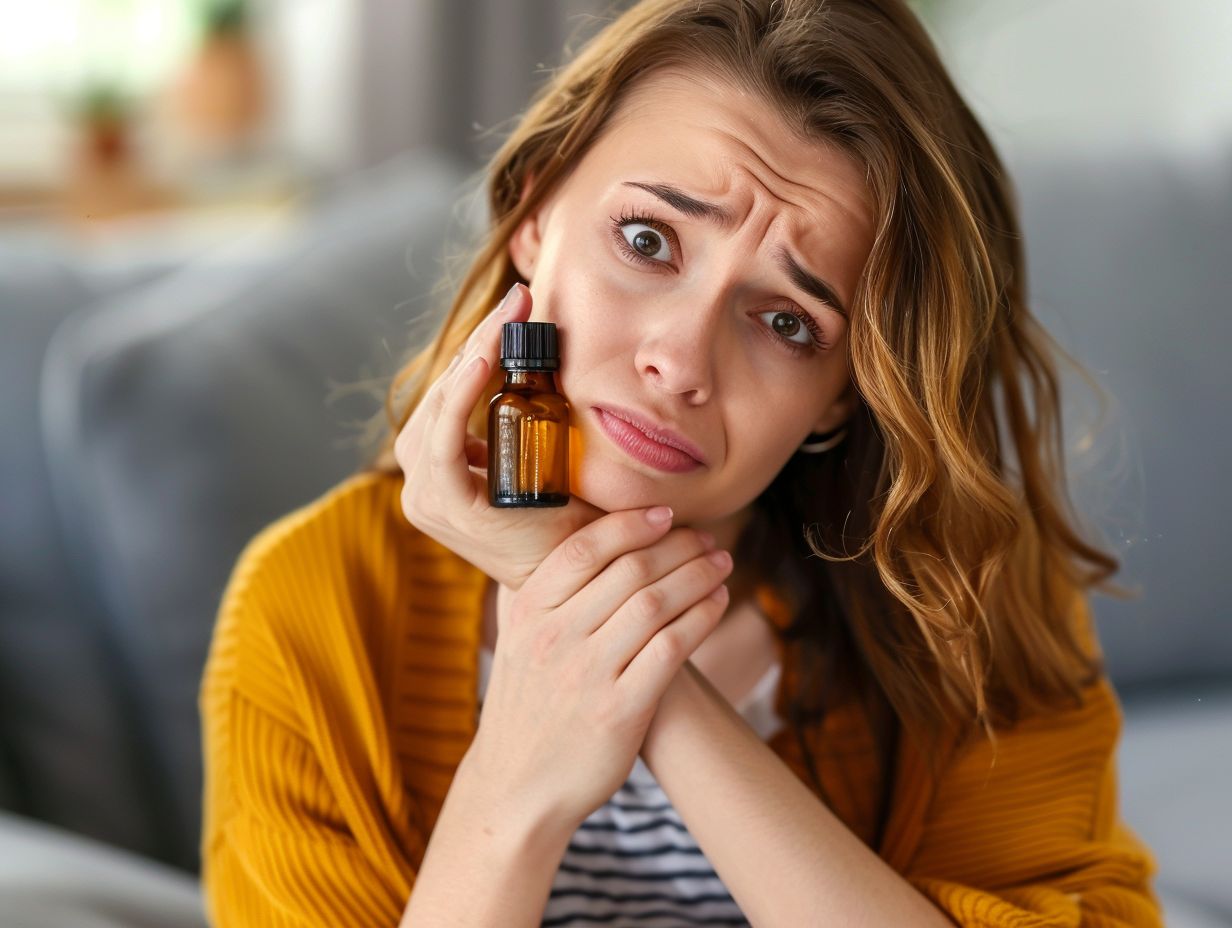
Scientific studies have concluded that essential oils do not directly cause cancer. While adverse effects from essential oils may occur, the evidence does not support a causal link between essential oil usage and cancer development.
It is important to differentiate between potential adverse reactions to essential oils, such as skin irritation or allergic responses, and the direct induction of cancer by these natural remedies. Research has shown that essential oils are not carcinogenic in their nature. Despite claims in popular media or by some individuals, there is a lack of empirical support for the idea that essential oils can promote cancer growth or trigger malignancy development. This distinction is crucial in understanding the actual impact of essential oils on human health and well-being.
How To Use Essential Oils Safely?
To ensure safe use of essential oils, it is crucial to dilute them properly before application, conduct a patch test to check for skin sensitivity, follow recommended dosages, and consult a healthcare professional for guidance on usage.
Proper dilution of essential oils is essential for preventing skin irritation or allergic reactions. When diluting, a common rule of thumb is to use a carrier oil, such as coconut or jojoba oil, in a ratio of 1 to 2% essential oil to carrier oil. It is recommended to perform a patch test by applying a small amount of diluted oil on the inner arm and waiting 24 hours to check for any adverse reactions.
For dosage guidelines, 1-2 drops of essential oil per tablespoon of carrier oil is typically sufficient for topical application. For some oils, like peppermint or cinnamon, even smaller amounts are advised due to their potency.
Dilute Essential Oils Properly
Proper dilution of essential oils is essential to prevent skin irritation and adverse reactions. Understanding the correct application methods and carrier oils for dilution can significantly reduce the risk of skin sensitivities.
Regarding diluting essential oils, it’s crucial to choose the right carrier oil that complements the properties of the essential oil being used. Carrier oils such as jojoba, coconut, almond, or olive oil are commonly used due to their neutral scent and skin-friendly nature. Mixing essential oils with these carrier oils not only helps in safe dilution but also enhances their absorption and efficacy.
Proper application of diluted essential oils is equally important. It’s recommended to perform a patch test before applying the diluted mixture to a larger area of the skin. This helps in identifying any potential skin reactions or allergies before full application. By following these guidelines, individuals can enjoy the benefits of essential oils without compromising their skin’s health.
Do A Patch Test Before Use
Conducting a patch test before using essential oils can help identify potential allergic reactions and assess the purity of the oil. This simple test on a small skin area can prevent adverse skin responses.
Performing a patch test serves as a crucial step in the safe application of essential oils. Essential oils may contain potent compounds that can trigger skin irritations or allergic responses in some individuals. By applying a diluted solution of the oil on a small patch of skin, one can observe any negative reactions before widespread use. Plus allergy detection, this test also aids in verifying the authenticity and quality of the essential oil, ensuring that consumers are using pure and unadulterated products.
Follow Recommended Dosages
Adhering to recommended dosages of essential oils is crucial to avoid adverse effects, especially in vulnerable populations like children. Excessive use beyond the prescribed amounts can lead to unintended health consequences.
Children have developing bodies that are more sensitive to concentrated substances like essential oils, making it essential to follow the instructions precisely to prevent any harm.
Guidelines provided by reputable sources emphasize the necessity of diluting essential oils and using them in moderation, especially for infants and young ones. Excessive amounts can cause skin irritation, respiratory issues, or even toxicity, underscoring the critical importance of using these potent substances with caution and care.
Consult A Healthcare Professional
Seeking advice from a healthcare professional before using essential oils, especially during pregnancy, is recommended to ensure safe and appropriate usage. Healthcare providers can offer tailored guidance based on individual health considerations.
During pregnancy, the body undergoes significant changes, and certain essential oils dangers may pose risks or affect the growing fetus differently.
Consulting a healthcare professional ensures you receive personalized recommendations and expert advice on which essential oils are safe to use and which ones to avoid. Healthcare providers can also consider any existing health conditions, allergies, or medications you may be taking to prevent any potential adverse reactions or complications from essential oil use.
Frequently Asked Questions
Do Essential Oils Cause Cancer?
There is no scientific evidence to suggest that essential oils cause cancer. In fact, many studies have shown that essential oils have anti-cancer properties.
Can Essential Oils Increase the Risk of Cancer?
No, essential oils do not increase the risk of cancer. In fact, some essential oils have been shown to have anti-inflammatory and antioxidant properties which can help prevent cancer.
Are There any Essential Oils That are Known to Cause Cancer?
No, there are no essential oils that are known to cause cancer. However, it is important to use high-quality, pure essential oils and follow proper dilution guidelines to avoid any potential adverse effects.
Do Essential Oils Interfere with Cancer Treatments?
There is no evidence to suggest that essential oils interfere with cancer treatments. However, it is always best to consult with your healthcare provider before using essential oils if you are undergoing cancer treatment.
Can Essential Oils Help with the Side Effects of Cancer Treatments?
Some essential oils may help with the side effects of cancer treatments, such as nausea and fatigue. However, it is important to consult with your healthcare provider before using essential oils for this purpose.
Are There Any Precautions I Should Take When Using Essential Oils if I Have Cancer?
If you have cancer, it is important to consult with your healthcare provider before using essential oils. They can provide guidance on which oils are safe for you to use and any precautions you should take.

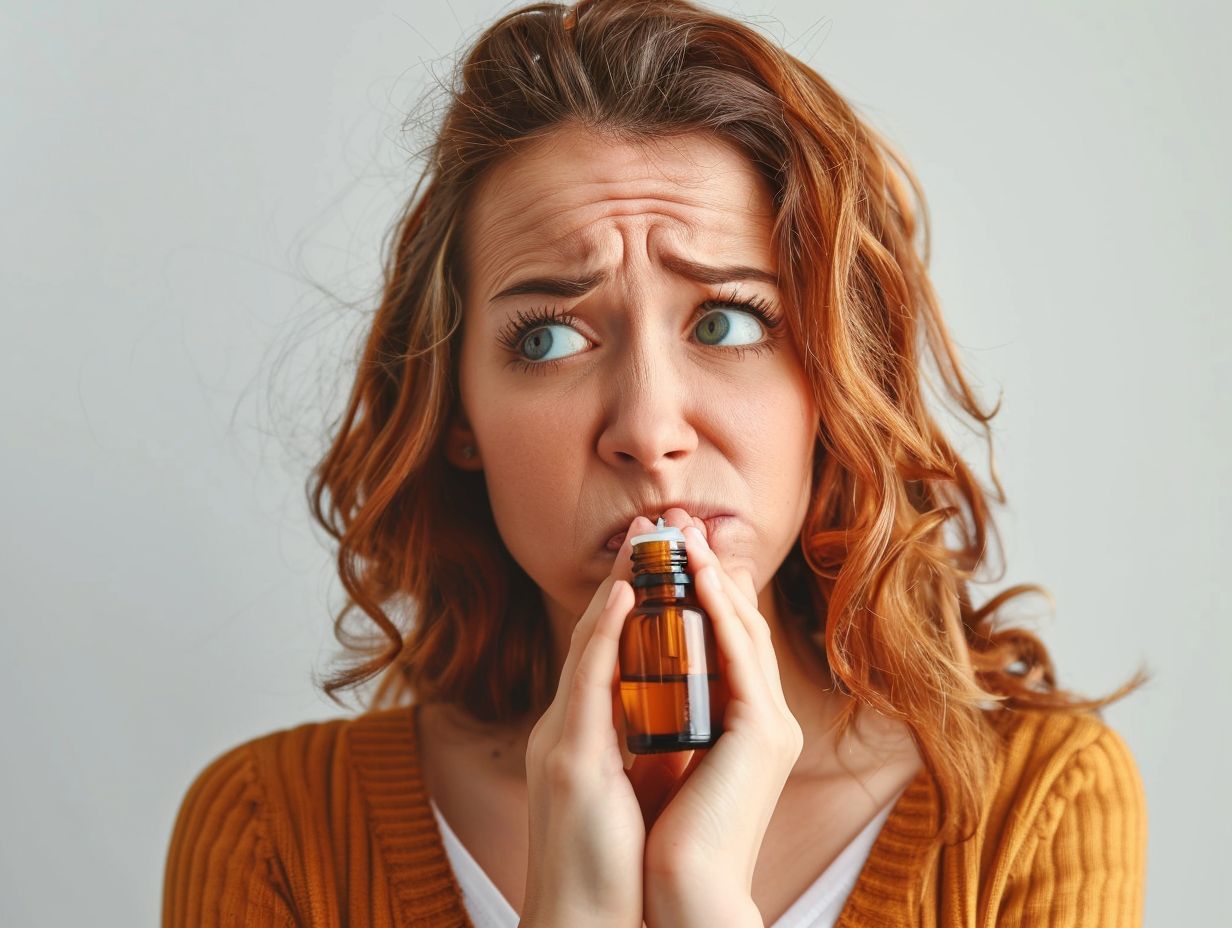
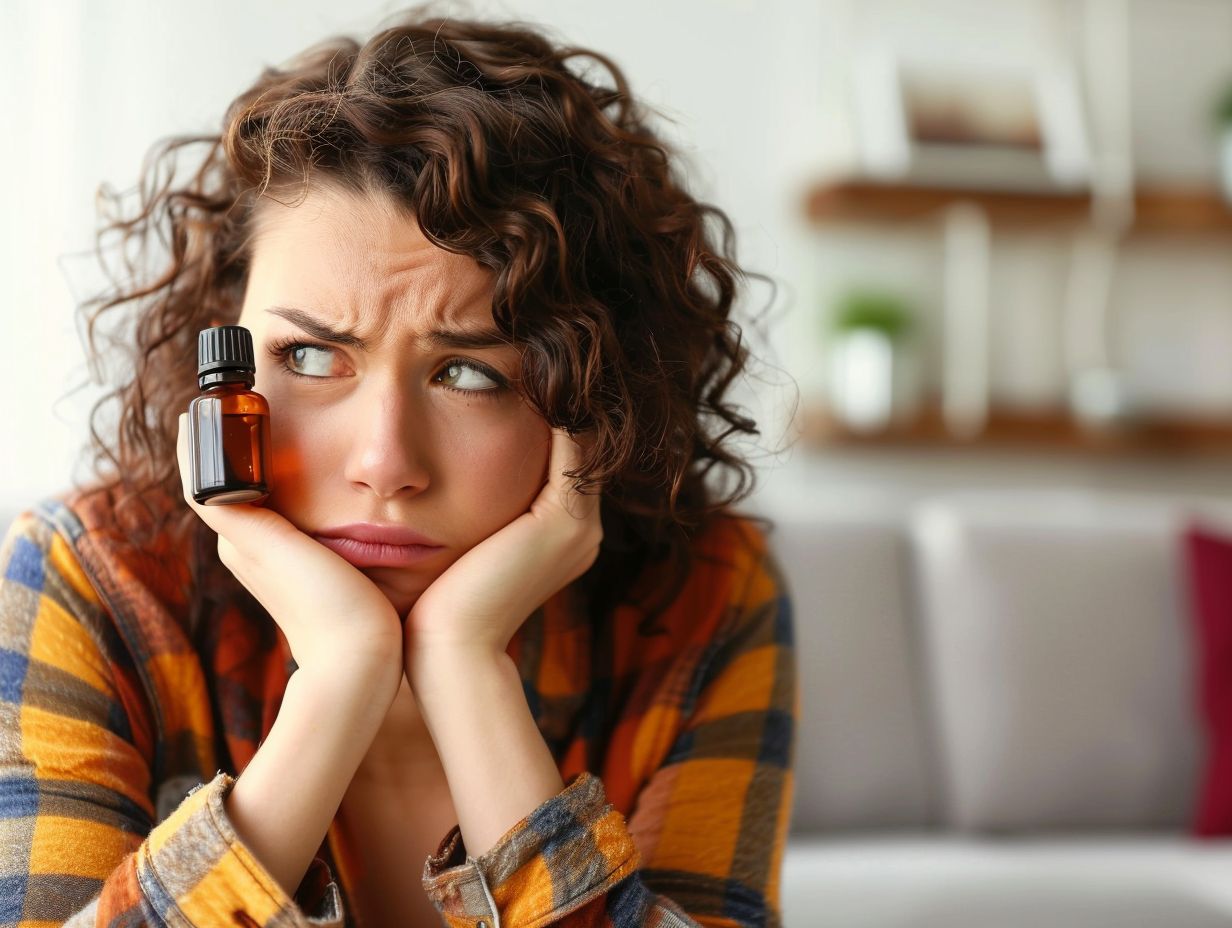
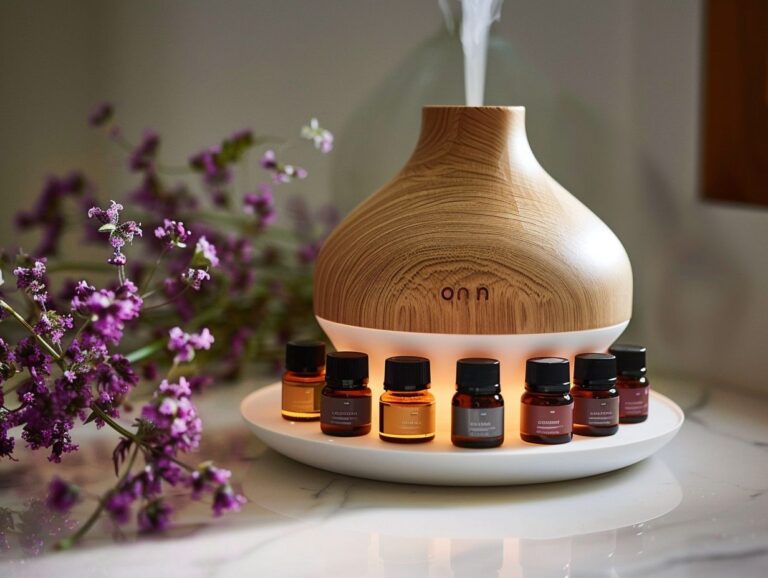

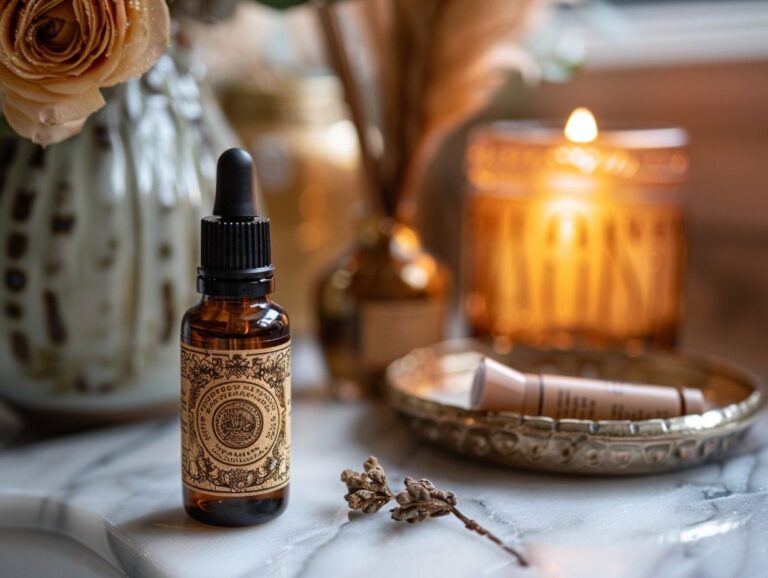


One Comment